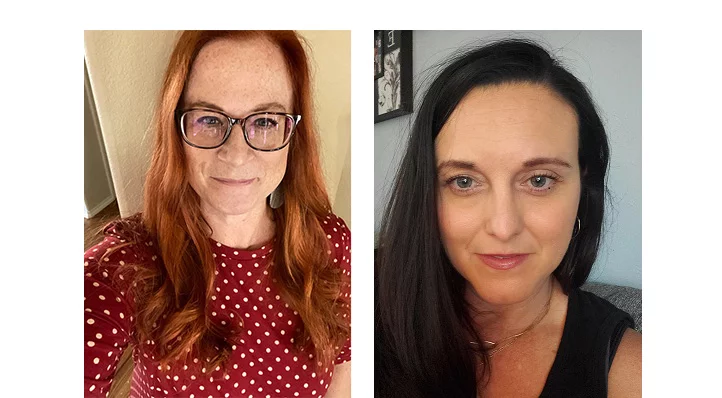
When the Marshall Fire disrupted life-saving treatments for COVID-19 patients, they jumped in to help
The patient was desperate and in tears.
The worst wildfire in Colorado history — fueled by drought and winds that reached 100 mph — was gobbling up homes in Superior and Louisville, just a few miles from UCHealth Broomfield Hospital.
Patients who had tested positive for COVID-19 and were at high risk for becoming critically ill and hospitalized if their infections worsened, had been receiving potentially life-saving monoclonal antibody treatments at Broomfield Hospital. But on the evening of Dec. 30, as terrifying winds continued to howl and the Marshall fire was destroying more than 1,000 homes, a lot was unknown.
Would the Broomfield Hospital need to be evacuated? If the hospital could stay open, would staff members who lived in the fire’s path be able to get there to give infusions? Would the staff members, themselves, be fire victims? In the end, leadership teams decided on the evening of the fire to divert patients who were slated to receive monoclonal antibody treatments the next day from Broomfield to UCHealth Lone Tree Medical Center. That’s when the urgent phone calls started.
It was already 9 p.m. when Alison Yowell and Jill Thompson jumped into action.
Yowell, a patient line manager, was phoning patients and Thompson, a manager at Lone Tree Medical Center, was calling staff and providers to see if they could give the infusions to the diverted patients.
One patient, in particular, was feeling desperate and frightened. The fire had threatened his home, forcing him to evacuate in minutes. During the chaos, he had left behind crucial medication. The man was staying at a hotel and was extremely worried. He was supposed to receive a monoclonal antibody infusion the next morning at Broomfield Hospital. He had tested positive for COVID-19 and had a serious underlying health condition that put him at high risk for getting much sicker without the infusion.
His pharmacy was on fire and he didn’t know if his home was still standing.
“A lot was going wrong for him, and I was going to make sure this one thing was going to go right,” said Yowell.
Yowell was able to reschedule the man’s infusion for the next day at the Lone Tree facility, and coordinated with a colleague to make sure the patient’s medications were waiting for him when he got to Lone Tree.
“He was so thankful that we made that happen,” said Yowell.
Thompson said the fast actions on the part of several people likely made a big difference for that man and many other patients.
“Without the monoclonal antibody infusion that day, who knows if his health would have declined more?” Thompson said.
Yowell focused on informing patients about the treatment location change while Thompson made sure there would be plenty of staff at Lone Tree to handle 20 COVID-19-positive patients on a day when the facility normally would have been closed. Other staff members assisted by packing up monoclonal infusion bags and arranging to ship them from Broomfield to Lone Tree.
“It was a lot of moving parts,” said Yowell.
Patients were understandably emotional. For staff members who stayed late and went above and beyond to help people enduring extreme stress, the responses were gratifying.
As a patient line manager, Yowell is a behind-the-scenes person. She helps get sick patients scheduled for life-saving infusions, and by doing so, keeps them out of the hospital. It’s a critical role during a time when every available bed matters.
“It fills your bucket when you can help someone like that young person who was so sick,” said Yowell.
Even better news? The patient reported his home did not, in fact, burn down.
You Make Extraordinary Possible Together, we recognize and honor the qualities within ourselves by shining a spotlight on how each and every one of us improve lives in big ways and small.
